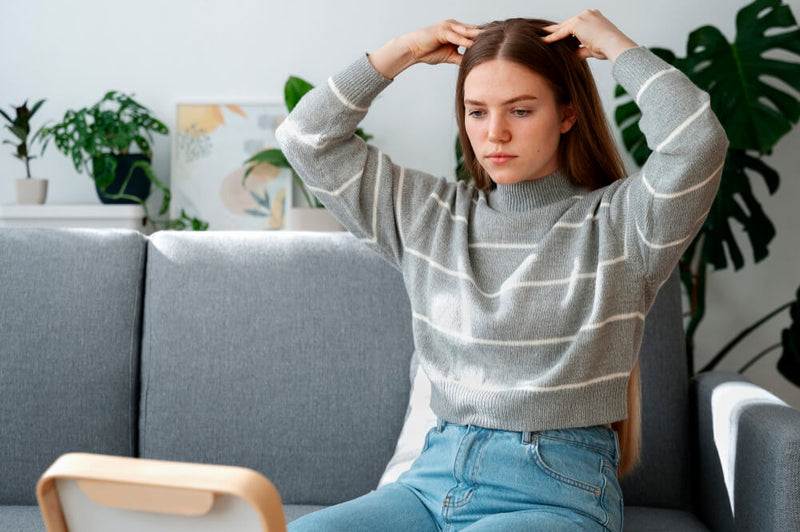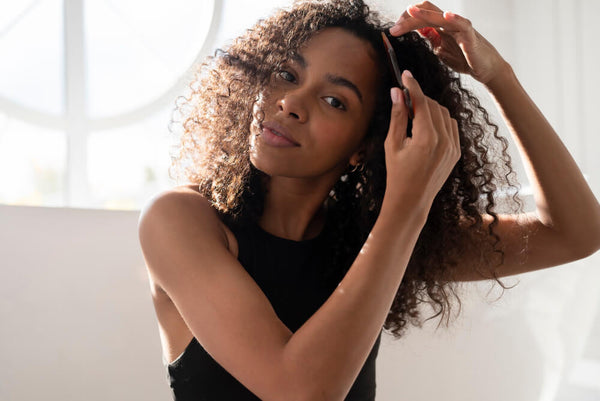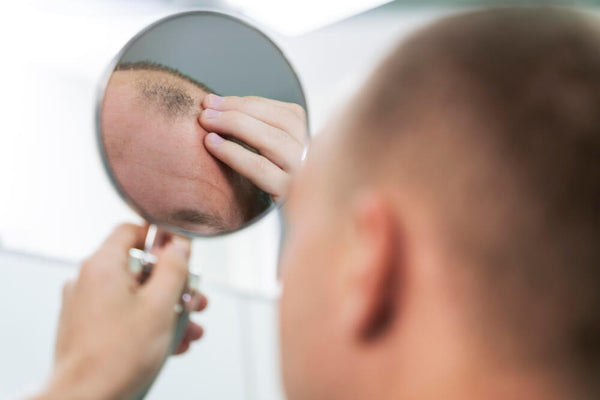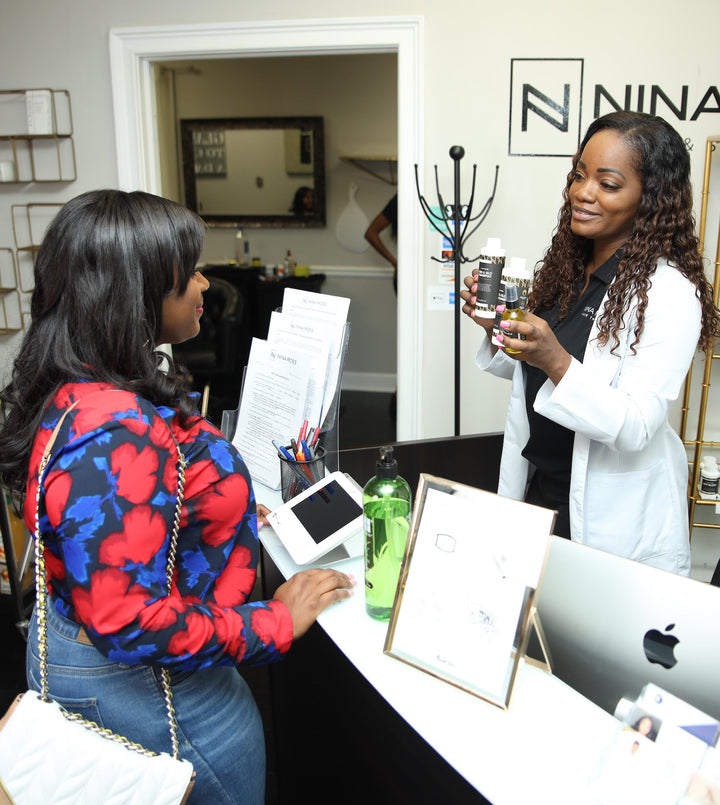So you finally took the plunge. You bought the minoxidil, followed the instructions and started applying it faithfully. And now... your scalp is on fire. It's red, it's flaky, it's so itchy you can't think straight. You're wondering, "Is this normal? Should I just power through?"
Let me be real with you: that intense itching isn't a sign that it's "working." It's your scalp screaming for help. As a trichologist who's treated hundreds of Black women with sensitive scalps, I'm here to tell you why this happens and what your options actually are.
Why Minoxidil Turns Your Scalp Into a War Zone
Most doctors will tell you the itching is from the alcohol base drying out your scalp. And yes, that's part of it. But for women with textured hair, there's so much more going on.
-
The Propylene Glycol Problem
This ingredient helps minoxidil penetrate your skin. But for many of us, it's a major irritant that disrupts our delicate scalp barrier. Think of it like this: your scalp has a protective layer, and minoxidil essentially pokes holes in it.
-
The Inflammation Cycle
Once that barrier is compromised, inflammation sets in. Your scalp becomes more sensitive to everything—other products, environmental factors, even the minoxidil itself. This is why the itching often gets worse over time, not better.
-
The Dirty Little Secret
Minoxidil doesn't just grow hair on your head. Many women experience unwanted facial hair because it goes systemic. If it's spreading through your body, what do you think it's doing to your already sensitive scalp?
What They Don't Tell You About Minoxidil and Black Hair
Here's what makes me frustrated: most minoxidil studies weren't done on women with our hair type. They don't account for:
-
Our naturally drier scalp environment
-
The inflammation from styles like braids and weaves
-
Conditions like CCCA that already create scalp sensitivity
-
The higher risk of contact dermatitis in melanated skin
We had a client last month who developed such severe dermatitis from minoxidil that she lost more hair from the inflammation than she gained from the treatment. She thought she was doing something wrong, but the product was wrong for her scalp.
The Root Cause Approach: What We Do Instead
At Nina Ross Hair Therapy, we almost never start with minoxidil. Why? Because hair loss isn't a minoxidil deficiency. It's a symptom of something deeper.
Before we consider any treatment, we need answers to these questions:
-
Is your hair loss hormonal? (High androgens, thyroid issues, perimenopause)
-
Is it inflammatory? (CCCA, folliculitis, autoimmune)
-
Is it nutritional? (Iron deficiency, low vitamin D)
-
Is it genetic? (Androgenetic alopecia)
Throwing minoxidil at hormonal hair loss without balancing your hormones is like trying to put out a fire with gasoline. The minoxidil might initially spur some growth, but the underlying hormone imbalance will keep causing loss.
When Minoxidil Might Make Sense (And When It Doesn't)
After comprehensive testing, we might consider minoxidil in very specific situations:
-
If you have classic genetic hair loss with no underlying inflammation
-
If we've first healed your scalp barrier and addressed any deficiencies
-
If we use compounded formulas without propylene glycol
-
If we combine it with anti-inflammatory treatments to protect your scalp
But even then, we monitor you closely. That itching? We take it seriously. It's not something to "push through" but rather a sign that your treatment needs adjustment.
Real Solutions That Don't Leave You Scratching
Minoxidil does work by forcing follicles into growth phase. However, we prefer to follow the techniques that work well with your body's own natural healing process:
PRP Therapy: This procedure uses your own growth factors to stimulate your hair growth.
Exosome Therapy: Even more powerful than PRP. It helps calm inflammation and regenerate follicles.
Nutraceuticals: Medical-grade supplements that cover the deficiencies.
The goal isn't to mask symptoms with a lifetime of itchy applications. It's to identify why your hair fall out and then create an environment where it wants to grow naturally.
Tired of Choosing Between Hair and Comfort?
If you're sick of the minoxidil rollercoaster, maybe it's time to try a different approach. Book your Hair Therapy Evaluation for just $99 and let us help you figure out what's really the issue behind your hair loss and then create a plan that actually works with your body, not against it.














